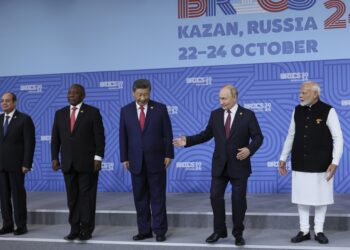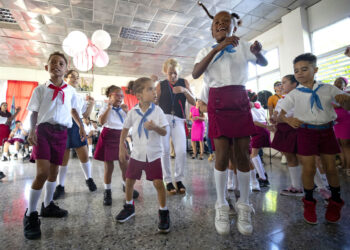There are things we do not talk about, that stubborn memory tries to delete by all means or return it to us wrapped in a blanket of longing. The Special Period ranks as one of those “things”, named because although it has a name, it does not say anything, it was a period not left behind nor so special. More than sweeten it with this euphemism we must call his name: Fucking Period.
No wonder that we have so few family photos of those years, it’s like in the late 1980s many things had happened and then for most of the nineties, few embarrassing event photos timidly reflected. In pictures skinny parents and grandparents like if Valeriano Weyler had returned to Cuba, half smiling faces and the innocence of who may not have full awareness of what is happening. Let me clarify that we Cubans are not particularly special, otherwise we would be Argentineans, but we did live in a very unusual circumstance.
At home we had no way to prepare for the Fucking Period, but we did. My father used to travel abroad for work, after his penultimate trip to the family sat at the table and solemnly said the socialist bloc would go down, had seen the signs in Bulgaria. A year later he would make his last trip, a few days before returning from Angola a mine let him die in a hospital in Luanda. The reaction of my mother in the following months was impulsive but successful: buy all the food and essentials for the long economic winter that her husband had planned, thanks to that we survived a little better in the 1990s.
When the shortages began not an ounce of gold was left at home, toys went missing and we learned to have fun with whatever came to hand, used racks and building blocks provoked my imagination for years. Something did remain, Russian cartoons escorted us stoically and what they lacked in beauty they made up the nostalgia felt by our parents over the previous decade.
The first signs of consumption were colorful, the kids learned that beer cans were ultramodern collectible value and nylon wrappers could be collected in albums that gave status to its owner at school. We were complacent spectators, real consumers were those with family overseas and no longer had to hide it. A positive result was that the need moved us closer to our Diaspora; it was possible to subordinate politics to family ties.
New sounds emerged as the cry of joy of the neighborhood when the blackout was over and we learned geographic strategy. On nights when there was no power, looking for a high point in the city to see who had electricity and if we knew someone out there we pay him a “visit”. For somewhere in my subconscious was the memory of a refrigerator that had raisins, small jars of yogurt and sufficient for the winter condensed milk, but it was unclear if it was a dream or a memory.
Those were hard years that children and teenagers spent better than our parents, who left us their food and saw many truncated dreams or subordinated to survival. Even so, teachers were better, some social services worked best, it was something that kept us close together and held the social consensus. What was it? Perhaps the belief that we could return to the 80s, but when the social difference was very big and we realized we had to walk into an uncertain future, the country began to change.
The special generation was formed in this context, without knowing or with a faint memory of the past eighties but living in a situation full of contradictions. That explains a lot, explains that many of my colleagues do not take an interest in getting into college, or many others migrate out of the country. We are left with the memory of their empty seats at school, a symbolism of the mortgaged future and the uncertain present.
The Fucking Period we remember every now and then by the sacrifices and the high amount of dignity that characterized it, but a very expensive dignity. Luckily, that thing of remembering is to relive works for the good times better than for the bad, because I’m not sure we can or want to do it again.










